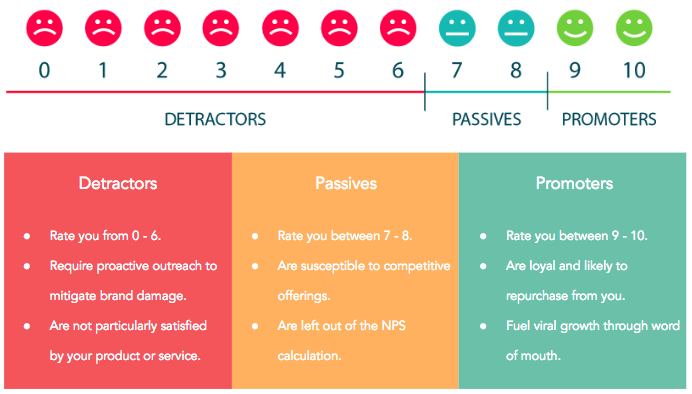
Our Culture Revolution. Part 1: A method to the madness
We’re just a normal agency. You may own one. You may work for one. We’re ticking along nicely, picking up new business and growing at a good pace. The team size has upped from 1 to 20 in five years, with plans of reaching 50 by 2021. Everyone seems happy. But we want more.
Day Zero was the launch of our manifesto. Its aim? To revolutionise our culture, attract amazing talent, and be recognised nationally as a great place to work.
Over the course of the next few months we’ll be taking you to the heart of Reddico, sharing our highs, our lows, and our eureka moments. We’ll be honest and open about everything. What works. What doesn’t. Whether you’re here for inspiration, to watch us fail, or out of sheer curiosity, welcome along.
No hours. No managers. Rules set by the team. Let’s see what happens next.
Going from good to great: The turning point
To explain where we’re going, I first need to tell you where we are.
We're in a good place. The team is happy. Our clients are happy. We hold regular get-togethers for everyone to socialise and let their hair down. We have a table tennis table. We have a beer fridge. We even have a games console in the breakout room. Pretty cool, right?
Things are going well.
But we still feel something's missing. While we have some nice perks around the office for the team to enjoy (and people would rather have them than not), there's surely more we can do to create an engaged workforce. This has challenged us to start thinking about an extreme culture where the team set the rules.
Other companies around the world have already made the decision to revolutionise their culture – and looking at their success and what has been achieved, the idea was something we could get behind.
The ultimate goal is getting the best results for clients, so we want to create an environment that helps the team achieve this. We want to enable people to work at their best.
But that's not where we are now.
We're still a 50/50 agency. We have a modern edge, but hold onto traditional office concepts – afraid to loosen restraints further.
The team don't have full autonomy.
We revert to the same rules set by previous companies we’d worked for. Micromanagement has been an issue. Late arrival is flagged. The team haven't been able to buy into top level goals. Freedom is restricted.
People aren't able to truly show us what they're capable of, because of invisible ties holding them back.
We know we want to change. Initially, perhaps not as much as we thought. We have to change our perceptions, our misconceptions, and ultimately, how we run a successful agency. If we want to get more from the team and create an enviable culture, we have to adapt.
How can we motivate our team?
This is the first question we need to answer. How do you further motivate an already-willing workforce?
Pay them more money.
You’d be forgiven for thinking that was true. We believed it for a long time. The truth is, our research shows it might not be right.
We don't want a team that's underpaid. But a number of sources say that once you eliminate the money concern, so everyone’s just thinking about work and what they could achieve, you get better results.
Just because you pay someone more money, doesn’t necessarily mean you’ll get a better return. It makes sense to us.
If money isn't the answer, what is?
This Dan Pink video debunks the money theory, instead saying that what people crave is purpose.
[embed]https://www.youtube.com/watch?v=KgGhSOAtAyQ[/embed]
What would motivate our team?
An opportunity to drive change and make an impact on their clients and the rest of their team.
We're also inspired by business case studies and success stories, where traditional culture was uprooted and replaced by a modern set of rules:
This slideshare details the culture of SEMCO, driven by CEO Ricardo Semlar
Happy Computers has earned a bunch of culture awards, inspired by Semlar and adapted by Henry Stewart – their Happiness Officer
Propellernet featured on the Great Place To Work award five years on the trot, and detail what the secret sauce is
But what comes first? With inspiration flowing, we need a basecamp. Values.
Driven by our business mentor, we have been reflecting on our current values:

These are sound values. But they’re not unique. They don’t inspire.
The backbone of our manifesto has to be a set of values that resonate with the team. They have to drive the culture change.
We can’t instil values in people. The team have to believe in them.
A new set of values would need to fit hand-in-hand with the larger vision of giving the team autonomy, a purpose, and a reason for being here. That was the ambition.
The bigger vision
“The world as we have created it is a process of our thinking. It cannot be changed without changing our thinking” – Albert Einstein.
Whilst Einstein wasn’t toying with the idea of offering his team unlimited holiday, there’s no reason we can’t apply this quote to the dynamic of office culture. Tradition is only tradition because someone set the rules.
Why can’t these rules be changed? They can, and we’re changing them.
What do we want?
A culture where the team is self-autonomous. Where middle management doesn’t bog down the system. To work in an environment where the term micromanagement is ripped apart letter by letter. To inspire a workplace people love and wouldn’t consider leaving. We want to attract the very best talent around the country to join our journey.
We’re still a small fish in a big pond. There are bigger agencies out there.
Yes, we’ve won awards. We’ve been recognised for the exceptional work our team produce. We’ve held a people-first view for as long as I can remember.
But we can be better.
We haven’t got unlimited resources. We’re not Facebook, Amazon, Google, or Netflix. But what we do have is a vision. And a purpose. An ambition for the team to love every day, what they do, and the impact they make with us, their clients, and the community around them.
Team happiness directly affects client happiness. That’s why client happiness doesn't come first. Team happiness does.
We need results to thrive as a business. Happiness and motivation will help us to achieve them. We want every campaign to be successful and profitable, focusing on ROI for every client.
But we also want to measure each interaction the client has with us. That’s why an ambition is to have 100% of our clients as promoters, catapulting us to a world-class NPS score.

Whilst we’re driven to create a culture where the team will thrive and achieve, our benchmark will always have to be results. Without results, we lose. We don’t like losing. We’re winners.
How we’ll be measuring success
First off, we need to define what success looks like. How else will we know if the cultural changes have a positive impact?
We need metrics to measure against.
The metrics you see below are the very same every member of the team is working towards. Top level goals that will have a real impact on us as a business, and can be affected by every department.
2017 results:
Revenue target: £1.4m
Revenue total: £1.5m
Internal NPS: 53 (Excellent – just!)
External NPS: 67 (Excellent)
2018 targets:
Revenue target: £1.85m
Internal NPS: 75 (World-class)
External NPS: 75 (World-class)
Five year vision (2021):
Revenue target: £5,000,000
Culture awards:
We want to be recognised for our culture, in order to attract the best industry talent and continue delivering excellent campaigns for clients. If we can pick up an award or two for the culture we're striving to create, that would be the cherry.
The following stats from Great Place To Work’s index survey in 2016 highlight the difficulty we face:

*Top 5 small UK Best Workplaces
There you have it; our short and long-term goals. This is how we should be judged, and how we’ll be measuring success.
What’s next?
We’ve already started the transformation and will need to bring you up to speed quickly. But all details will still be included. There are no secrets.
You can dip in and out. You can read every word. You can read every word twice.
It’s up to you.
We’ll be publishing our manifesto, giving you each and every detail, and offering insight into an SME that wants to do things differently. Whether you’re a team of 5 or 500, you could learn a lot.
Every planning session, every meeting, every decision, every win, every success, every question, every answer, every failure, every time we want to give up – you’ll know first.
It’ll be written for you.
Sign-up to Reddico News
To keep up-to-date with the latest developments in the world of SEO, our insights, industry case studies and company news, sign-up here.




